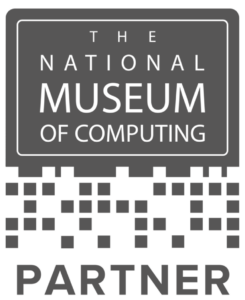As the Managing Director of an IT company, travel and meetings form a big part of my role and a few years ago I was experiencing serious issues with our mobile network provider. When in London, whenever 9am came I simply wouldn’t be able to use mobile data and with this being of such importance to me I’d get straight onto the provider’s support desk to report it. This happened several times in the same month and I got a mix of ‘this is not an issue anyone else has reported’ or ‘this is a known issue and we’re working on it’. The ‘You’re the only person affected’ bugged me because I’d be sat in a well-known coffee shop with free WiFi alongside a whole host of people experiencing the exact same problem (which is why we were all drinking coffee in the same place)!
‘This is a known issue’ bugged me even more because I was wasting my time trying to report an issue they already knew about but hadn’t bothered to warn me about. On the one hand they were lying to me and on the other simply hoping I wouldn’t notice or would just put up with it.
Frustrated I moved my entire company over to a different provider that same month.
The Business Needs IT to Communicate
Looking at the situation I described above I’ve absolutely no doubt that my service provider at the time was doing what they could to resolve whatever the root cause of that service disruption was. The problem I had was that they failed to realise that they needed to communicate with me in a way that set my expectations accordingly. The result was a loss of faith and in this case, for them, a loss of business.
My time with the new provider was not perfect either but they handled things differently. Sometimes I would be notified that disruptions had been reported in my area and they were working to fix them. The service impact was still there but I knew I might be affected and when I was it was expected, and I was able to deal with it. Just as importantly I didn’t waste my time trying to report something they already knew about. I experienced the same loss of service, but I was a much happier customer and because of that, three years later we’re still with the same provider.
Channels of Communication
The above is a perfect example of how business is impacted purely by the way in which IT operates. The original provider did communicate, but not effectively; they failed to identify the most appropriate channels to get that message across, as well as to understand what they needed to communicate in the first place.
We’re well past the time where telling a caller we know about the issue or putting a banner on our self-service portal is enough. By now someone has already been impacted enough to try to report the issue and who’s to say they’ll even try that in the first place? Email might work, but these days it’s swamped with so many messages that the important stuff might get lost or simply not seen in time; plus, it’s hard to tell someone your email system is down by sending them an email.
So other channels need to be considered. Perhaps social media; if your user or customer base is highly likely to make use of Twitter or Facebook etc. then mass notification via these channels could help to fill the proactivity gap in IT communication.
As with all things though we need to consider carefully what it is we’re communicating, who we’re trying to communicate to, and what it is we’re trying to achieve.
Approach this poorly and important communications will be ignored, a bad impression may be formed, or even worse that channel will be switched off/unfollowed by our target audience.
The Right Information to the Right Person in the Right Format
Not everything is a mass notification and even if it was, not everyone needs the same notification. If we’re declaring a major incident then service subscribers might benefit from a notification, but what about the people we need to bring together to start to resolve the situation? What about those that need to be aware that something is happening and that steps are being taken (and what are those steps)?
This could easily be three different messages; one for the service subscribers updating them, one to the ‘Tiger Team’ to start to bring everyone together, and one for the IT Director to make sure they’re aware of what’s happening so they don’t have to bluff when the Sales Director or Managing Director asks about it in the next meeting or as they pass in the corridor.
To address this scenario and others such as emergency changes, service request approvals, and many more, we benefit from a tiered approach to get information to the right people in the most appropriate way so that it’s timely and does not get lost along the way.
What They Don’t Know Can Hurt IT
Not quite the saying we’re familiar with but in IT the standard saying just doesn’t work. For IT to close the gap with business IT needs to communicate, and most importantly communicate effectively. Business success relies on clear and timely communication because it’s rare for a business these days to not depend on IT to function.
ITIL and simple common sense recognises the importance of communication as part of processes but has your IT department embraced what this truly means in the context of your business?
Five Communication Considerations
With all of the above in mind, here are my recommendations for what you should consider when it comes to improving IT and business communications:
- Consider communication from the perspective of your target audience – what would you need to know if you were in their shoes and how might the message (or lack of) colour your perception of IT and the business?
- What channel(s) should the communication flow through? – If this absolutely must be seen, then do you have a channel that makes sure it will? Can you prove it reached them (audit trail)?
- Automate communication where possible – make communication part of your service process rather than the responsibility of each individual. Consistency matters.
- Remember that overcommunication can backfire – too much information too frequently can result in your messages being tuned out or the end user ‘unsubscribing’
- Don’t forget to tell people that the issue is resolved – whether it’s a broadcast or you let affected users choose to subscribe to further updates, the need to know the issue is resolved.
If there is any other advice that you would have included in this list, please let me know in the comments.

Mark McGinn
Mark is Managing Director of MarXtar Ltd an international business with over 10 years delivering IT Systems and Service Management solutions. MarXtar’s flagship product Enterprise Notifier delivers Targeted, Auditable and Actionable communications to desktops and mobile devices via the ENgage! Mobile app.


